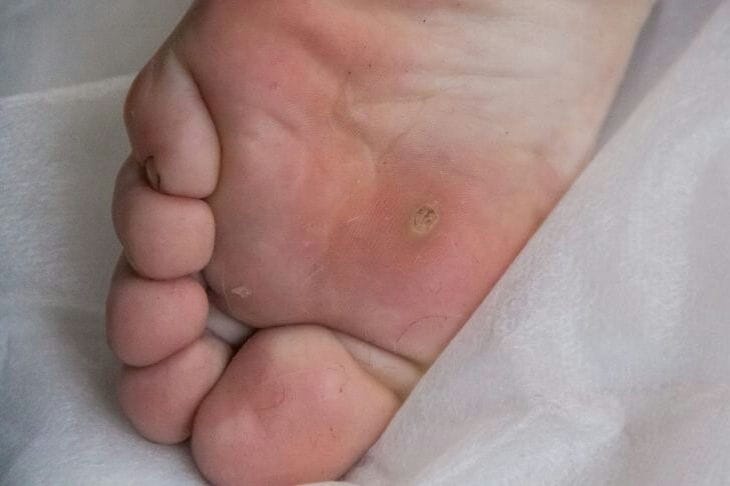A callus, or, in medical terminology, hyperkeratosis, is most often formed as a result of mechanical friction.
We invite you to discuss the different types of calluses on the feet.
Dry calluses
A dry callus is a small thickening of the upper layer of the epidermis, usually pink or yellowish in color.

Such formations most often appear on the bottom or side of the foot, heel and big toe, since it is these areas that bear the main load when walking. Dry callus usually does not cause pain, but can cause discomfort when pressed.
Core calluses
A core callus, in turn, is a small area of growth of cells of the stratum corneum of the epidermis with a smooth edge and a rounded shape.
It differs from other formations by its core, which goes deep into the tissues. Such calluses often occur between the toes and on the lateral surfaces of the toes, with the exception of the big toe.
When pressing on the core callus, a sharp pain is felt, as the nerve endings are compressed between the bone and the dense core of the callus.
Soft calluses
A soft callus is a painful growth that develops from a dry callus when there is increased moisture (such as from sweat). It appears as a whitish, fluid-filled growth and is often found between the toes.
Such calluses are dangerous because, due to the favorable environment, there is a high chance of a secondary bacterial or fungal infection.
Despite the fact that we have tried to list all the main signs of calluses, they are still confused with other formations, so you should not self-medicate - seek help from a doctor.
Previously, we talked about the differences between tea varieties and which one is the healthiest.





